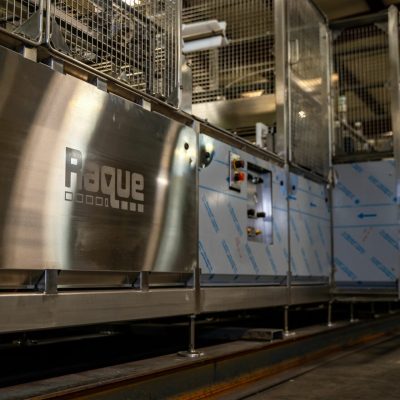By Hayley Robb, Building Kentucky

Airports across the U.S. are devoting more space to freight shipment as online shopping surges in the pandemic and transforms the industry. And one of the largest hubs is coming to Kentucky.
The Cincinnati/Northern Kentucky International Airport (CVG) has been experiencing a 60% drop in passenger traffic with 15,000 fewer people arriving and departing from the airport daily.
The good news for CVG is the runways are staying busy with a record amount of air cargo – nearly 4,000 tons a day.
In 2020, air cargo grew by 14 percent at CVG and is expected to grow by 10 percent in 2021 and 2022 when the new facility is fully operating. Air cargo landing fees currently account for 75 percent of the $25 million in annual revenue at CVG.
To respond to the influx of shipments, Amazon Air is building a 798,000-square-foot sorting center, seven-level parking structure and acres of concrete to accommodate 20 aircraft. The new facility is under construction now and is scheduled to open this fall.
This portion of the project is just a fraction of the bigger picture. It represents a third of the $1.5 million, three-million-square-foot air cargo hub Amazon is committed to building at CVG.
“This hub is going to let us get packages to customers faster,” Jeff Bezos, the Amazon founder and chief executive, said during the groundbreaking ceremony at CVG in May 2019. “That’s a big deal.”
This project is by far the largest air cargo construction project in the airport’s 74-year history. And it’s one of the only airports receiving this much attention from Amazon Air.
The company began its relationship with Amazon in 2008 when Delta Air Lines shut its regional hub at CVG and closed all terminals. The airport was forced to diversify its revenue.
Airport executives and marketing staff began pitching the airport as a centrally located destination just a short flight or half-day drive away from most metropolitan airports in the Midwest, East and South. With easy access to the interstate, Ohio River and city center, many carriers hopped on board immediately. DHL, FedEx, WayFair and FEAM Aero all opened sites at the airport once Delta left.
Amazon Air’s cargo strategy differs from others in that the airport facilities need to be close to its fulfillment centers for distribution.
Since March 2020, this strategy has helped both Amazon and local economies.
To date, Amazon has invested more than $15 billion in Kentucky, much of it on 10 fulfillment and sorting centers, two delivery stations, a customer service center and two Whole Foods Markets. Amazon employs 14,500 people in Kentucky and with the air cargo hub will add 2,000 more.
“We learned the lesson to diversity from Delta,” CVG chief executive Candice S. McGraw told a New York Times reporter. “We’re grateful for the cargo business.”










